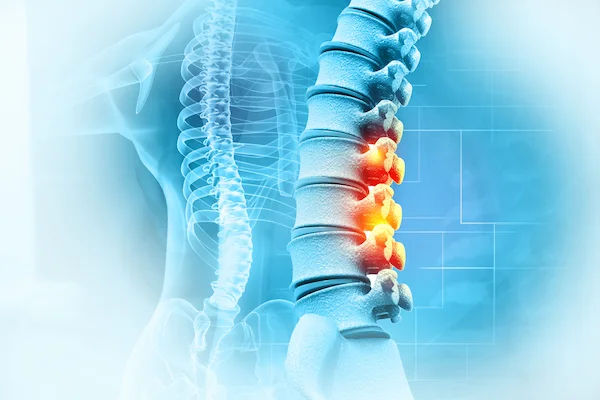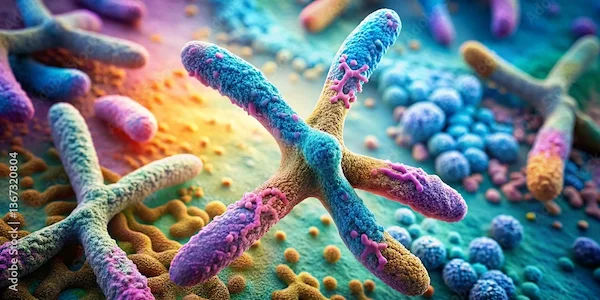Causes and Treatment of Low Libido
Low libido can stem from physical, psychological, or lifestyle factors. Understand the common causes, effective treatments, and self-care strategies to restore sexual health and overall wellbeing.


Low libido, or reduced sexual desire, is a common issue that affects many people at some point in their lives. It can be frustrating and may impact self-esteem, relationships, and overall well-being. The good news is that low libido is often treatable once the underlying cause is identified. In this article, we’ll explore the possible causes, how it affects health, and ways to manage or improve it.
What Is Low Libido?
Libido refers to a person’s sexual desire or drive. While it’s normal for sexual interest to fluctuate due to stress, fatigue, or life changes, persistent low libido may indicate an underlying physical or emotional issue. Both men and women can experience it, though the causes may differ.
Common Causes of Low Libido
Low libido can stem from a variety of factors, including physical, psychological, and lifestyle-related causes.
Physical Causes
1. Hormonal Imbalances: Testosterone (in men) and estrogen (in women) play a key role in sexual desire. Conditions like menopause, low testosterone, or thyroid disorders can reduce libido.
2. Chronic Illnesses: Diabetes, heart disease, and high blood pressure can affect blood flow and nerve function, impacting sexual desire.
3. Medications: Antidepressants, blood pressure medications, and birth control pills may lower libido as a side effect.
4. Fatigue & Poor Sleep: Lack of energy due to poor sleep or exhaustion can diminish sexual interest.
Consult Top Specialists
Psychological Causes
1. Stress & Anxiety: High stress levels can reduce sexual desire by affecting hormone balance and mental focus.
2. Depression: Low mood and lack of interest in activities can extend to reduced libido.
3. Relationship Issues: Conflicts, lack of emotional intimacy, or unresolved issues with a partner can contribute to low sexual desire.
Lifestyle Factors
1. Poor Diet & Lack of Exercise: A sedentary lifestyle and unhealthy eating habits can lower energy and libido.
2. Alcohol & Smoking: Excessive alcohol and smoking can impair sexual function over time.
3. Lack of Self-Care: Neglecting mental and physical well-being can contribute to reduced sexual interest.
How Low Libido Affects Health?
While low libido itself isn’t dangerous, it can lead to:
- Emotional distress: Feelings of frustration, guilt, or inadequacy.
- Relationship strain: Reduced intimacy may cause tension between partners.
- Lower self-esteem: A decline in sexual confidence can affect overall happiness.
Tips to Improve Low Libido
Here's how to improve low libido:
1. Address Underlying Health Issues
- Consult a doctor to check for hormonal imbalances, chronic illnesses, or medication side effects.
- If needed, hormone therapy or switching medications may help.
2. Manage Stress & Mental Health
- Practice relaxation techniques like meditation, yoga, or deep breathing.
- Seek therapy or counseling if anxiety, depression, or relationship issues are contributing factors.
3. Improve Lifestyle Habits
- Exercise regularly: Physical activity boosts energy, mood, and circulation.
- Eat a balanced diet: Foods rich in zinc (nuts, seafood), omega-3s (fish, flaxseeds), and antioxidants (fruits, vegetables) support sexual health.
- Get enough sleep: Aim for 7-9 hours per night to restore energy levels.
4. Enhance Intimacy & Communication
- Openly discuss feelings and desires with your partner.
- Focus on non-sexual intimacy (cuddling, deep conversations) to rebuild connection.
5. Consider Natural Supplements (With Caution)
- Some herbs like ginseng or maca root may help, but always consult a doctor before trying supplements.
When to Seek Professional Help?
If low libido persists despite lifestyle changes, or if it’s causing significant distress, it’s best to consult a healthcare provider. They can help identify the root cause and recommend appropriate treatments, such as:
- Hormone therapy
- Counseling or sex therapy
- Medication adjustments
If you're experiencing persistent low libido, consider booking a consultation with a specialist through Apollo 24|7. Expert doctors can guide you with personalized treatment options.
Conclusion
Low libido is a common issue with many possible causes, but it doesn’t have to be permanent. By understanding the underlying factors and making positive lifestyle changes, many people can regain their sexual desire and improve their overall well-being. Remember, seeking help is a sign of strength—not weakness.
Consult Top Specialists
Consult Top Specialists

Dr Syed Mateen Pasha
General Physician
2 Years • MBBS
Bengaluru
PRESTIGE SHANTHINIKETAN - SOCIETY CLINIC, Bengaluru

Dr. Anand Ravi
General Physician
2 Years • MBBS
Bengaluru
PRESTIGE SHANTHINIKETAN - SOCIETY CLINIC, Bengaluru

Dr. Mohamed Azeem
General Physician/ Internal Medicine Specialist
2 Years • MBBS,MD(Internal Medicine) CCEBDM
Karaikudi
Apollo Hospitals Karaikudi, Karaikudi

Dr. Harshendra Jaiswal
General Physician/ Internal Medicine Specialist
12 Years • MBBS , MD (General medicine)
Kolkata
108 DHANA DHANVANTARI Clinic, Kolkata
(25+ Patients)

Dr. M L Ezhilarasan
General Practitioner
6 Years • MBBS
Visakhapatnam
Apollo 24|7 Clinic - Andhra Pradesh, Visakhapatnam
Consult Top Specialists

Dr Syed Mateen Pasha
General Physician
2 Years • MBBS
Bengaluru
PRESTIGE SHANTHINIKETAN - SOCIETY CLINIC, Bengaluru

Dr. Anand Ravi
General Physician
2 Years • MBBS
Bengaluru
PRESTIGE SHANTHINIKETAN - SOCIETY CLINIC, Bengaluru

Dr. Mohamed Azeem
General Physician/ Internal Medicine Specialist
2 Years • MBBS,MD(Internal Medicine) CCEBDM
Karaikudi
Apollo Hospitals Karaikudi, Karaikudi

Dr. Harshendra Jaiswal
General Physician/ Internal Medicine Specialist
12 Years • MBBS , MD (General medicine)
Kolkata
108 DHANA DHANVANTARI Clinic, Kolkata
(25+ Patients)

Dr. M L Ezhilarasan
General Practitioner
6 Years • MBBS
Visakhapatnam
Apollo 24|7 Clinic - Andhra Pradesh, Visakhapatnam




